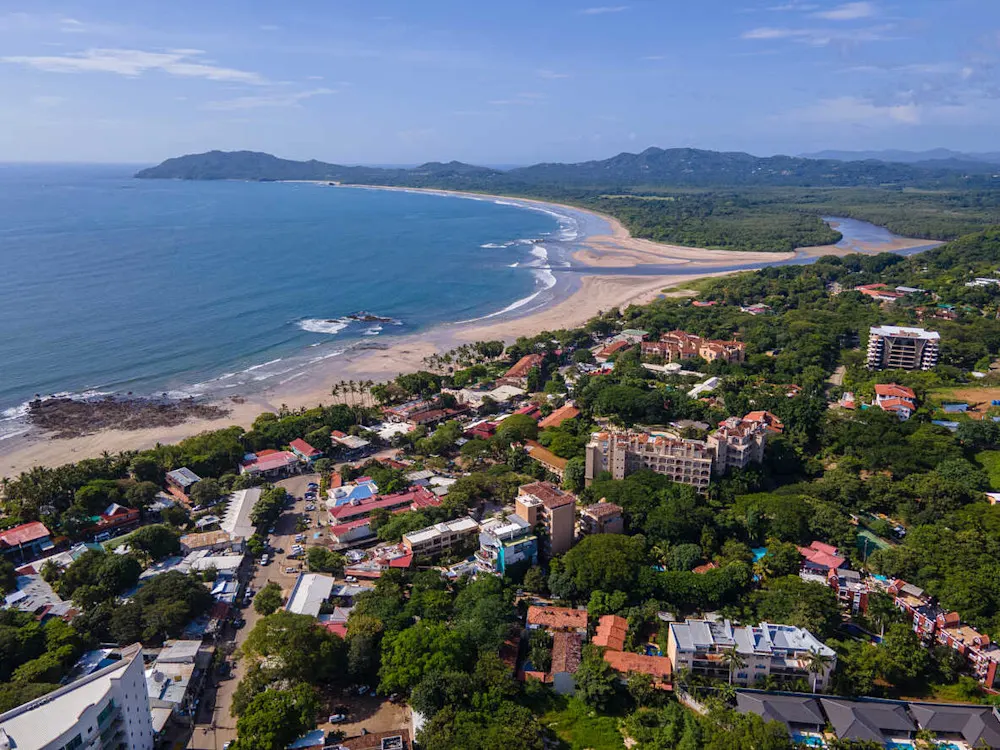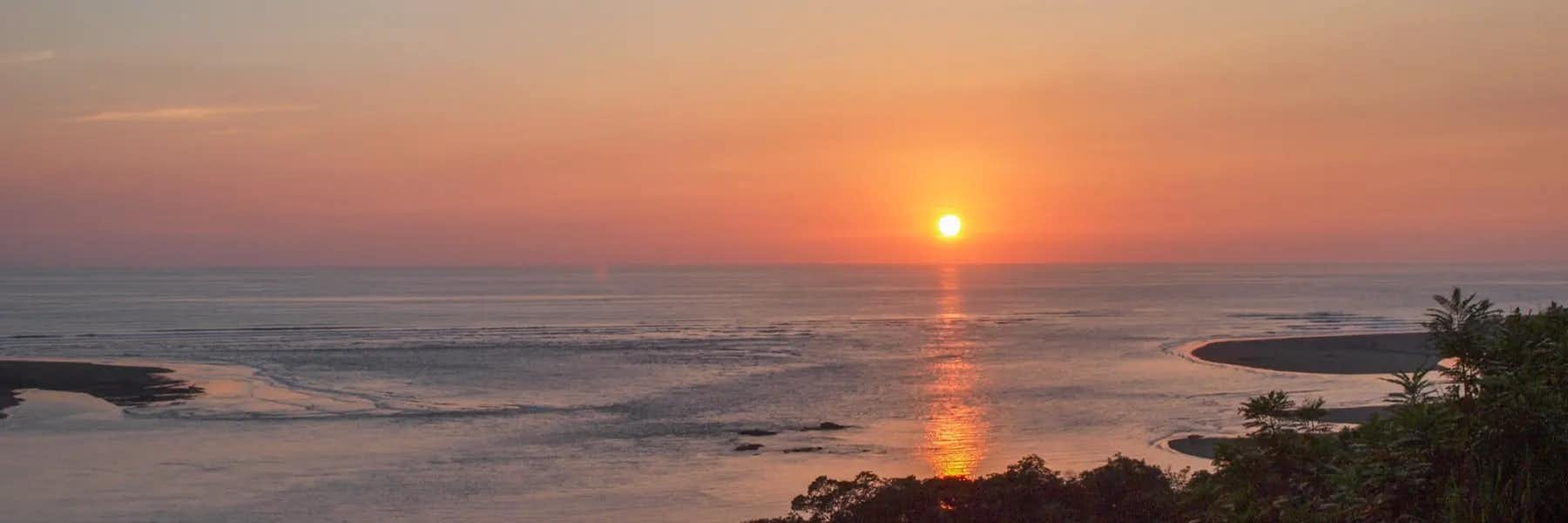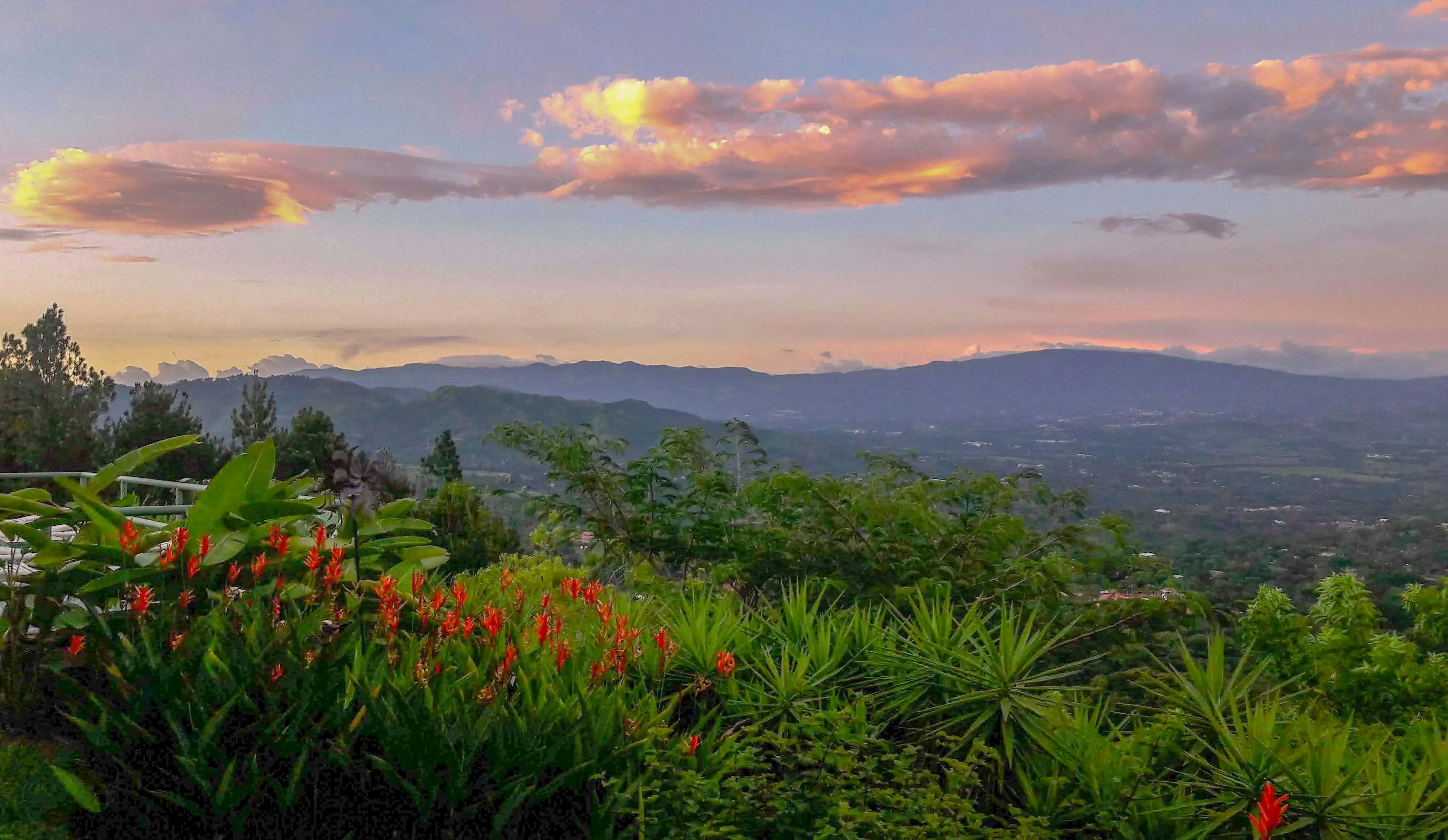Costa Rica is notably welcoming to foreigners, and the combination of an excellent climate, quality healthcare, and 0% taxes on foreign-source income has made it a popular place for retirees and others to settle.
You don’t have to make an immediate decision on your residence status. Most foreigners can remain in Costa Rica for up to three months on just their passport. After that time, the period can be extended, but the procedure can be challenging.
Many expats live for years in Costa Rica without residency. Every three months they simply leave and re-enter the country to renew their tourist visa after taking long weekends elsewhere, usually in Panama or Nicaragua. But upon returning to Costa Rica, you must have an onward ticket out of Costa Rica (plane or bus) within 90 days or you won’t be allowed in. (Similarly, when you arrive in Costa Rica by plane for the first time, you must have a return ticket within 90 days. No one-way tickets allowed.)
The “border run” trick, also known as “perpetual tourism,” is not reliable for long-term living. At any time, government rules allowing this “loophole” can change. Or a border official can give you a shorter tourist visa term or deny you entry altogether at his or her discretion, although this is rare. During the pandemic, Costa Rica was quite lax with their immigration laws—allowing those foreigners who remained in the country to extend their visas for nearly a full year without having to do anything. Now, the government is cracking down on these perpetual tourists and encouraging illegals to apply for residency or leave.
If you’re from the U.S., Australia, Brazil, Canada, the European Union, or several dozen other countries, all that you’re likely to need is a passport to enter Costa Rica, and you can stay for up to 90 days. Nationals of several other countries, including India, Colombia, and China, will need to apply for a tourist visa, except in certain circumstances, and can remain for up to 30 days.
Read on for more information on Costa Rica's wide range of visa options...
Get Your Free Costa Rica Report Here
Get Your Free Costa Rica Report Here
Learn more about Costa Rica and other countries in our daily postcard e-letter. Simply enter your email address below and we’ll send you a FREE REPORT - Explore the Old World in Laidback Costa Rica.

By submitting your email address, you will receive a free subscription to IL Postcards and special offers from International Living and our affiliates. You can unsubscribe at any time, and we encourage you to read more about our Privacy Policy.
Types of Visas

There are a number of different visas and residency permits to fit your individual situation and needs, and it’s important to know which is right for you.
Temporary Visas
U.S. and Canadian citizens do not need an entry visa. However, their tourist visits are limited to 180 days. On arrival, they must show a return ticket or proof of onward travel to another country and proof of funds of at least US$100 per month for their proposed visit.
Costa Rica also offers a Digital Nomad visa. It’s valid for 12 months and can be extended for another year as long as you’ve stayed at least six months in the country during your first year. You must have foreign employment or clients providing a minimum monthly income of $3,000. If you have family members with you, the requirement is $4,000.
Long-Term Visas
There are three popular ways to apply for temporary residency in Costa Rica. All are valid for two years and are renewable as long as you continue to qualify:
Pensionado residency for retirees requires proof of a minimum monthly income of $1,000 from a retirement fund or permanent pension source.
Rentista residency requires a $60,000 deposit in a local or foreign bank and a $2,500 monthly transfer into a Costa Rican account over two years. After 24 months, you must deposit another $60,000 to restart the process.
Inversionista residency requires a one-time investment of $150,000 in real estate, stocks, bonds, or another opportunity.
Temporary residents cannot work in the country. They can own a business, but they must hire employees to do the actual labor.
Permanent Residency
After being a legal temporary resident for three years, you can apply for permanent residency. The permanent resident permit must be renewed every five years. Permanent residents can legally work in the country.
Citizenship
Citizens by naturalization is available to foreign nationals who’ve lived in the country for at least seven years. Costa Rica doesn’t “officially” accept dual citizenship. Foreigners who become naturalized Costa Ricans must sign a statement renouncing their original citizenship. The office of Options and Naturalizations keeps these statements on file, but does not forward them to foreign embassies, nor do they check on what new citizens do about their original status. This has led to a widespread “don’t ask, don’t tell” approach to dual citizenship.
Requirements and Documentation
All documentation in any visa or residency application must be translated into Spanish and apostilled. The required documentation includes, but is not limited to:
A letter of application, addressed to the Consul of Costa Rica, stating the reason why you want a residence permit. The letter must contain your full name, nationality, birthplace and date, passport number, place and date of arrival and address in Costa Rica (if applicable), your occupation/profession, and contact information.
Birth certificate, issued by your country of origin (not older than six months).
Certificate of your past criminal record from your home country or the place you have been living for the past three years. U.S applicants should submit a Federal Criminal Background Certificate not older than six months.
Your valid passport and copies of all the pages on your passport, even blank ones.
Three recent passport-size pictures.
Proof of sufficient financial means.
Proof of fingerprint registration issued by the Ministry of Public Safety. This is not applicable for dependents under the age of 12.
Costa Rica allows applicants to submit residency requests to foreign consulates or immigration officers within the country.
Processing Time
Processing times for most residence permits are 9 to 24 months. However, applicants and their families are allowed to stay in Costa Rica whilst the application is being processed.
Cost
Most temporary residence permits cost 50 U.S. dollars per applicant, Plus a payment of between $1.25 and $2.50 for each page of documentation submitted as part of the application.
Contacts
Costa Rican Embassy in the U.S.
2114 S Street NW, Washington, DC 20008
Tel. (202) 499-2991
Email: concr-us-wa@rree.go.cr
Consult with Me, One-on-One
My Mission: To Make Your Life Simpler, Safer, and Freer … Not More Complicated
Stop overcomplicating, second-guessing, or giving in to “information paralysis” … Let’s sit down together (online), and I’ll help you create a custom blueprint for your international goals… second passports, tax, travel, retirement, estate, business, and more…














